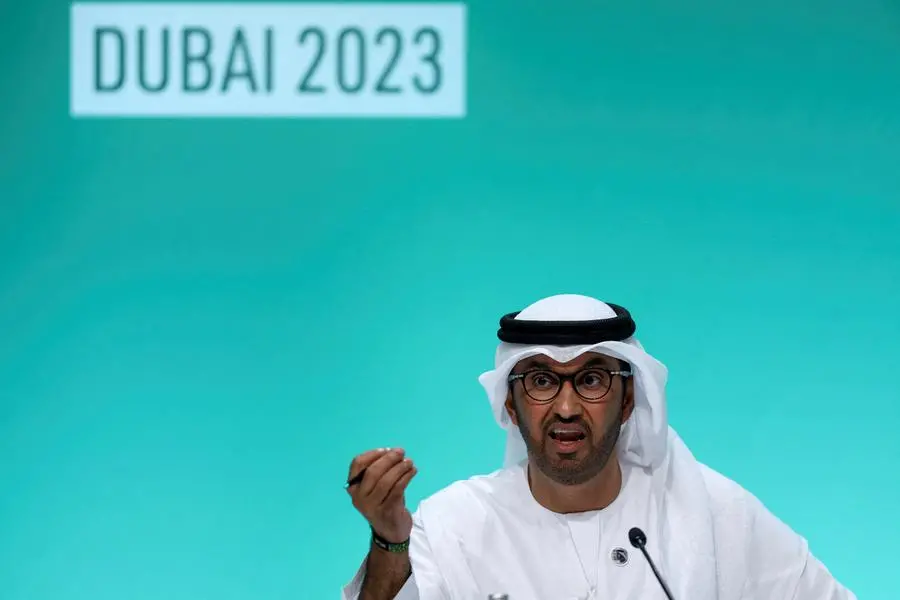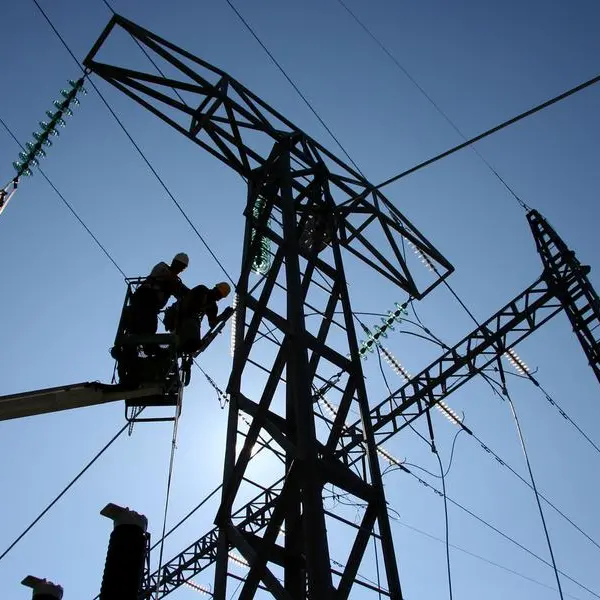PHOTO
DUBAI - Ahead of the toughest phase of U.N. climate negotiations, COP28 President Sultan Al Jaber appealed to countries to maintain momentum and achieve a punctual finish after what he said was a week of historic progress.
In a speech late on Wednesday, Jaber praised delegates from nearly 200 countries for the agreement on the opening day of the two-week summit on a "loss and damage" fund to aid countries stricken by climate-driven disasters.
Countries, businesses and philanthropies have since pledged to mobilise $83 billion in climate finance, which "can only raise the bar higher", Jaber told the delegates.
"What we have collectively accomplished only in a week is, in my view, nothing short of being historic," he said. "In just seven days we have demonstrated that multilateralism does actually work, it is alive and well."
While the summit venue was quiet on Thursday, with negotiations officially paused for a scheduled "day of rest", delegates were working toward a final COP28 agreement by the conference's scheduled Dec. 12 close.
When the summit resumes on Friday, countries will start to tackle the finer details and Jaber is expected to outline his work plan for the second week, including a goal to close on schedule.
That would be a feat U.N. climate talks have not achieved since COP9, 20 years ago in Milan.
Eight of the last 10 COP meetings have stretched into overtime by at least 24 hours, according to Carbon Brief news and data website - including last year's COP27 in Egypt and the previous COP26 in Glasgow.
In the final stretch of COP28, negotiations focus on some of this year's toughest issues.
GLOBAL STOCKTAKE
For the first time, countries are undertaking the mammoth task of assessing their climate progress so far and what remains to be done.
Known as the "global stocktake," the work is expected to yield a blueprint for future policy action by governments to try to prevent climate change from escalating to extremes.
Draft texts so far show numerous options for national climate plans to take up, meaning ministers must address a lack of consensus.
"They still have a lot to accomplish to provide the political signals that will course correct towards meeting the goals of the Paris Agreement and keeping 1.5 degrees within reach," said observer Kiryssa Kasprzyk, climate policy director at Conservation International.
SAUDI ARABIA
Some delegates have said that oil-producer Saudi Arabia has held up negotiations in different work streams by pressing for the removal of any mention of a phasing down of fossil fuels.
Colombia's Environment Minister Susana Muhamad told Reuters that her country has asked for a high-level meeting with the Saudi delegation, after Colombian delegates witnessed the Saudis blocking text in negotiating rooms.
Saudi Arabia "is trying to keep things status quo, you know, more of an attitude," she said. "But the reality is that we can't do that" given the climate-fueled weather extremes and disasters occuring around the world.
PHASE DOWN? PHASE OUT?
The 27-member European Union, Chile and others want the final COP28 deal to include a clear call to phase out fossil fuel use - without including language that might enable countries to heavily rely on carbon capture and removal for that goal.
Chile's Environment Minister Maisa Rojas - herself, a climate scientist - urged her counterparts from other countries to not postpone the issue to a future year.
"It is absolutely necessary," Rojas told Reuters of a phase out. "We have known this for a long time."
To get round objections from Saudi Arabia, Russia and other countries whose economies rely on oil and gas, negotiators are looking for alternative wording to signal a shift from fossil fuels through the 2030s.
The "phase down/phase out" language has become a flashpoint for countries that produce oil, gas or coal.
Trinidad and Tobago for the Alliance of Small Island States, known as AOSIS, suggested the language: "phasing out of fossil fuels in line with the best available science and IPCC pathways and principles and provisions of the Paris agreement," an observer of the negotiations said.
The United States and China managed to avoid the terms altogether, agreeing in their November bilateral in Sunnylands, California - to triple renewable energy deployment to "accelerate the substitution for coal, oil and gas generation" and "meaningful absolute power sector emission reduction, in this critical decade of the 2020s".
"I expect we'll see some creative wordplay," Catherine Abreu, founder of NGO Destination Zero, said.
CLIMATE FINANCE AND ADAPTATION
Since the deal for the disaster fund was adopted on Nov. 30, Jaber said countries have mobilised over $726 million to capitalise it, and he expected to get more into the fund by the end of this year's COP.
Progress on climate adapatation has stalled, however, with ministers needing to resolve a stalemate over wealthy versus poor country obligations to pay into the fund.
They will also need to address how to boost climate finance.
The pledges made at COP28 are still far short of the hundreds of millions that will be needed each year to help developing countries adapt to the conditions of a warming world - including sea level rise and increasingly dangerous heat.
Developing nations also need billions, if not trillions of dollars in annual finance to shift to cleaner energy.
"The finance piece is particularly important because developing countries are understandably hesitant to be burdened with global targets that they can't afford to carry out," said Teresa Anderson, who leads climate justice work at the global nonprofit ActionAid International.
(Reporting by Sarah McFarlane, Valerie Volcovici, Jake Spring; Additional reporting by Kate Abnett; Editing by Katy Daigle and Barbara Lewis)





















